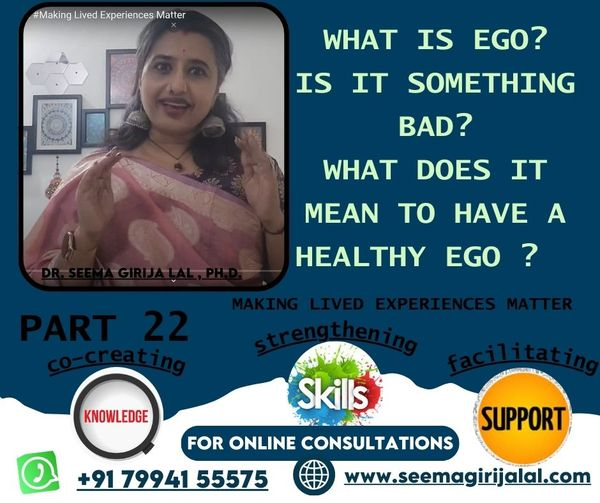The concept of “ego”
May 25, 2024

The concept of "ego" can be pretty tricky since it means different things depending on the context. In psychology, especially in Freud's theory, the ego is the part of our personality that balances our basic desires (the id) and our moral standards (the superego). It helps us navigate the real world in a way that makes sense and keeps us out of trouble.
Ego is also about our sense of self and self-worth, including things like self-trust, self-esteem, and self-confidence. In this way, having a well-developed ego is important for a healthy self-image.
But what happens when the ego isn’t fully developed? It can make seeking help really difficult because asking for help means admitting you’re struggling or don’t know something, which can be tough if you don't have a strong sense of self. People with a weak ego might either act like there’s no problem and suffer inside or feel really low when asking for help.
Taking feedback can be hard, too, because it can feel like they’re being shamed or blamed instead of seeing it as a chance to learn. Apologizing might come with lots of excuses because admitting they’re wrong can make them feel bad about themselves, and they might not be able to separate their actions from their identity.
Mistakes and failures can be even harder to deal with because they might see themselves as the mistake, making it tough to accept and learn from errors. When someone talks about their feelings, they might deflect because they see it as an attack, making self-reflection really challenging since they’re focused on protecting themselves.
Disagreements can be tough to handle too. Someone with a weak ego might feel anxious about differing viewpoints, thinking it means they’re not loved or are being blamed. This can lead to either immediately agreeing or getting into fierce arguments where they shame and blame the other person.
Overall, having a fully developed ego is crucial for a healthy sense of self. It helps us seek help, accept feedback, apologize, learn from mistakes, reflect on ourselves, and handle disagreements constructively.
